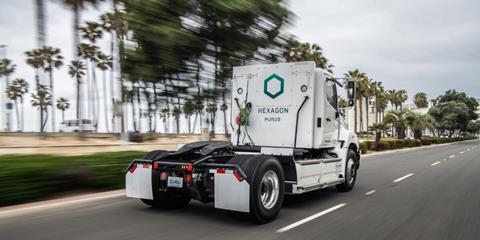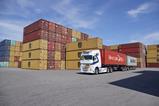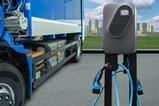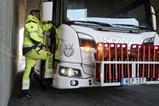Hexagon Purus Systems USA LLC, a subsidiary of Hexagon Purus ASA, a leading manufacturer of zero-emission mobility and infrastructure solutions, has signed a multi-year agreement with Panasonic Energy Co. for the supply of lithium-ion battery cells.

Panasonic, a global provider of innovative battery technology-based products and solutions, will supply battery cells for Hexagon Purus’ proprietary battery systems, marking an important milestone for Hexagon Purus’ zero-emission heavy-duty offering in North America with battery system production initially slated for Kelowna, Canada.
The battery cells will be produced at Panasonic’s new facility in Kansas, United States, and will be compliant with the United States-Mexico-Canada (USMCA) trade agreement. The supply of battery cells will commence in early 2026, and Hexagon Purus will prepay approximately $43 million by 2025, subject to the achievement of certain milestones, to secure battery cell capacity.
“Securing our battery supply chain has been an important objective for Hexagon Purus to deliver on our customer contracts such as the recently announced distribution agreement with Hino for the production of complete battery electric heavy-duty vehicles for the US market,” said Morten Holum, CEO of Hexagon Purus.
Hexagon Purus’ EVP, Todd Sloan, added, “The agreement with Panasonic is a strong validation of our technology and will provide us a solid competitive platform to deliver quality solutions to our customers.”
Kazuo Tadanobu, CEO of Panasonic Energy, added, “Partnering with Hexagon Purus will help us to drive the growth of the lithium-ion battery industry and accelerate the transition to zero-emission mobility.”
The U.S. Environmental Protection Act and California Air Resources Board have introduced proposals and regulations to address the need for further reductions in emissions in the transportation sector. In California, CARB has introduced a regulation for truck manufacturers (Advanced Clean Truck standard) and more recently proposed a new regulation for fleet owners (Advanced Clean Fleet standard). Both regulations aim at reducing emissions and accelerate the adoption of zero-emissions vehicles (ZEVs) in the transportation sector in California.
The ACT requires that 5% of all new class 7 and 8 trucks sold in 2024 in California must be ZEV while new additions to fleets of class 7 and 8 trucks operating to and from intermodal seaports and railyards are required to be ZEV from 2024. The ACT regulation also requires 100% of truck manufacturers’ sales in 2040 to come from ZEVs, putting an effective end to the sale of internal combustion engine trucks in California and incentivizing investments into infrastructure and the supply chain.
With approximately 1.8 million commercial trucks operating in California daily, according to CARB, the combined effect from the ACT and ACF regulations will lead to approximately 0.5 million ZEVs on the road by 2035 in California, increasing to 1.6 million in 2050.


















